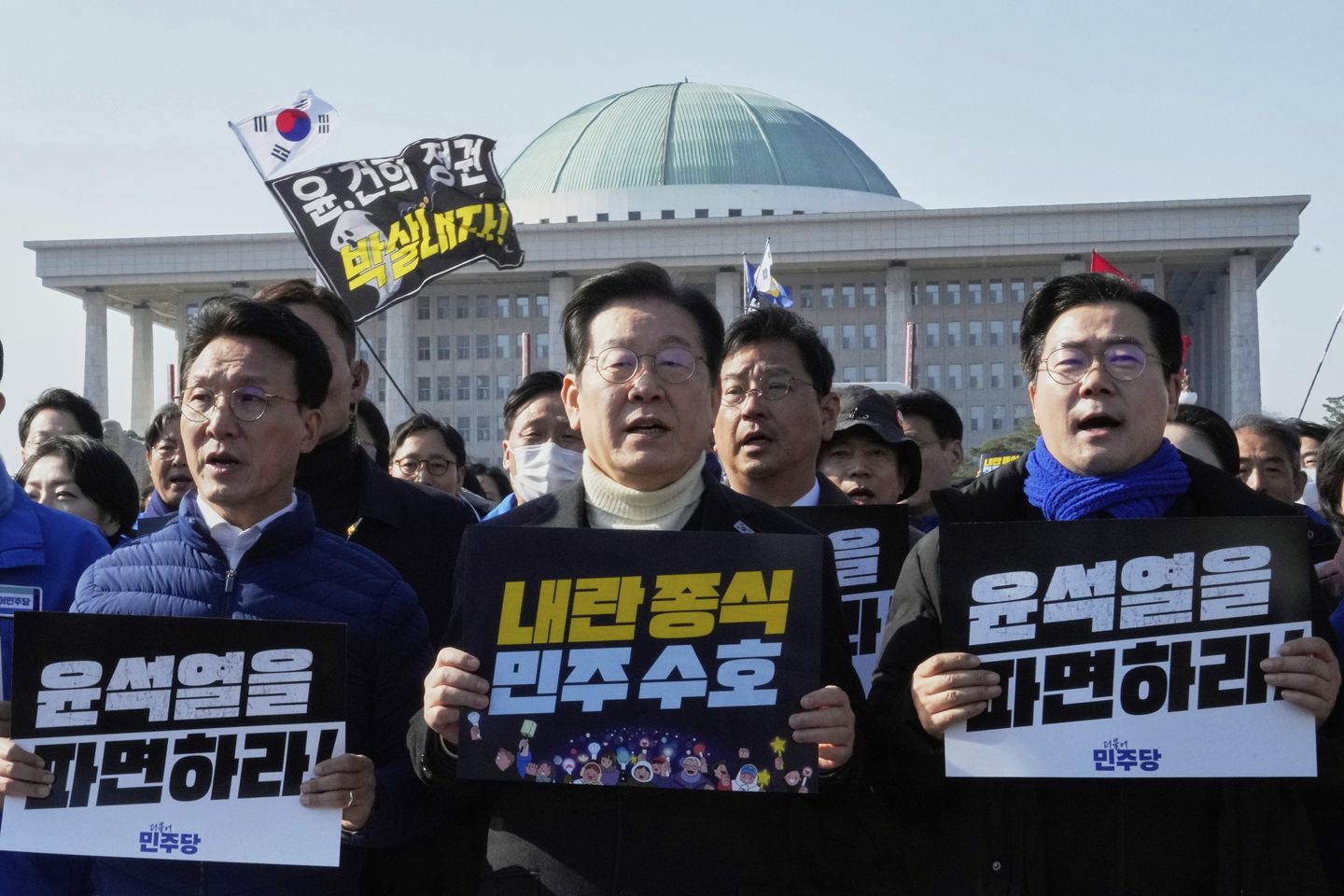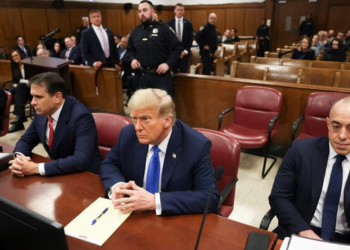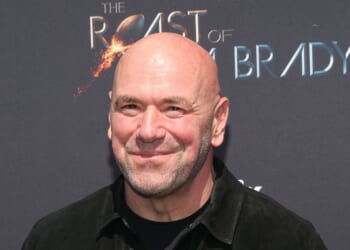
SEOUL, South Korea — South Korea’s upcoming June 3 presidential election is Lee Jae-myung’s to lose.
The former head of the main opposition Democratic Party of Korea, Mr. Lee has resigned his position to make his third run at the presidency. And this time, the 61-year-old has an approval rating above 50%.
A presidential race in South Korea had not expected before 2027, but the political calendar was flung into disorder after the removal from office of President Yoon Suk Yeol on April 3.
Mr. Yoon was impeached after his shock declaration of martial law in December. He now faces charges of insurrection.
In a poll published Monday by Realmeter, Mr. Lee had an approval rating of 50.2%, well ahead of the candidate in second place, Kim Moon-soo of the ruling conservative People Power Party, at 12.2%.
Though there are DPK challengers to Mr. Lee, his victory in the party primary is widely seen as a given.
The PPP held its first-round primary on Tuesday, cutting its first-round field of eight contenders down to four.
Following a second-round primary, a single PPP presidential candidate will be chosen on May 3. Per Monday’s poll, Mr. Kim is the likeliest choice.
Despite Mr. Lee’s obvious political chops, his game has been off in two high-profile plebiscites.
Following the impeachment of conservative President Park Geun-hye in 2017, Mr. Lee lost the DPK’s primary to Moon Jae-in, who went on to win the single-term presidency.
Mr. Lee won the next DPK primary, then lost the 2022 presidential election by a whisker to Mr. Yoon.
But nobody can accuse Mr. Lee of being a milquetoast.
On the night of martial law, he livestreamed to the nation while rushing to the National Assembly. There, he breached a police and special forces cordon. Inside, he led a quorum, which voted down martial law just three hours after its issuance.
Monday’s poll data suggests that Mr. Lee is successfully softening his formerly uncompromising leftist image.
A tough-talking, working-class man, he entered national politics the hard way: Fighting uphill through mayorships and provincial governorships.
Though he remains popular in his first constituency, Seongnam, he has been dogged by endless allegations of corruption and abuse of power, and been impacted by multiple suicides among his entourage.
Politically, he has promoted universal basic income, spoken angrily at demonstrations against Mr. Yoon’s outreach to Japan, and sought better relations with China and North Korea.
With the presidency so close, he is walking back some of his earlier positions.
Mr. Lee faced flak from conservatives for holding a chummy meeting with the Chinese ambassador in 2023. This January, he met the acting U.S. ambassador to Korea.
Seen by some as anti-business, he met Samsung Electronics Chairman Lee Jae-yong in March.
In certain policy areas — engaging with North Korea’s leadership, possibly reducing U.S. troop numbers in South Korea — he may synch well with U.S. President Trump. He shares Mr. Trump’s disdain for multilateral security partnerships, and has blamed NATO for the Ukraine War.
But whether Mr. Lee and Mr. Trump would agree on improving relations with Beijing, or of potentially using U.S. forces in Korea for off-peninsula operations, is questionable.
In 2025, Korea mastered its third impeachment crisis without major strife, but whoever wins the presidential race will inherit a troubled and polarized domestic polity.
The peninsula’s frozen, eight-decade division illustrates the contentious nature of inter-Korean politics. With three of its last five presidents suffering impeachment, South Korea’s domestic politics are equally divisive.
The two main parties battle over a political terrain that fortifies bipartisanship. The executive and the legislature are frequently at odds, and as the National Assembly lacks an upper house, there are only two power nodes.
A political thinker told foreign reporters that the last two presidents, Mr. Moon and Mr. Yoon, widened political chasms by deprioritizing consensual leadership.
“Retaliatory policies and the Moon administration’s strategy raised anger among conservatives,” said Kang Won-taek, a politics professor at the elite Seoul National University.
Under Mr. Moon, who led Korea from 2017-2022, two former conservative presidents, as well as most of the cabinet of the prior administration, were jailed.
That “had a severe impact” on the 2022 presidential election, Mr. Kang continued: “The parties tried to see who was a good fighter among presidential candidates, rather than who would be a more competent, better president.”
As Mr. Moon’s term ended, Mr. Lee and Mr. Yoon emerged as their respective parties’ champions.
Mr. Lee’s DPK, wielding its legislative majority, impeached more cabinet appointees than any prior parliament, and crippled Mr. Yoon’s proposed budget.
Mr. Yoon escalated with martial law — and was unseated.
Some in the National Assembly are researching possible constitutional change.
“Korean democratization was all about taming the ‘imperial presidency,’” said Michael Breen, Seoul-based author of “The Koreans,” who, as a journalist, covered the anti-authoritarian struggle of the 1980s. “What they should think about now is legislative tyranny.”












